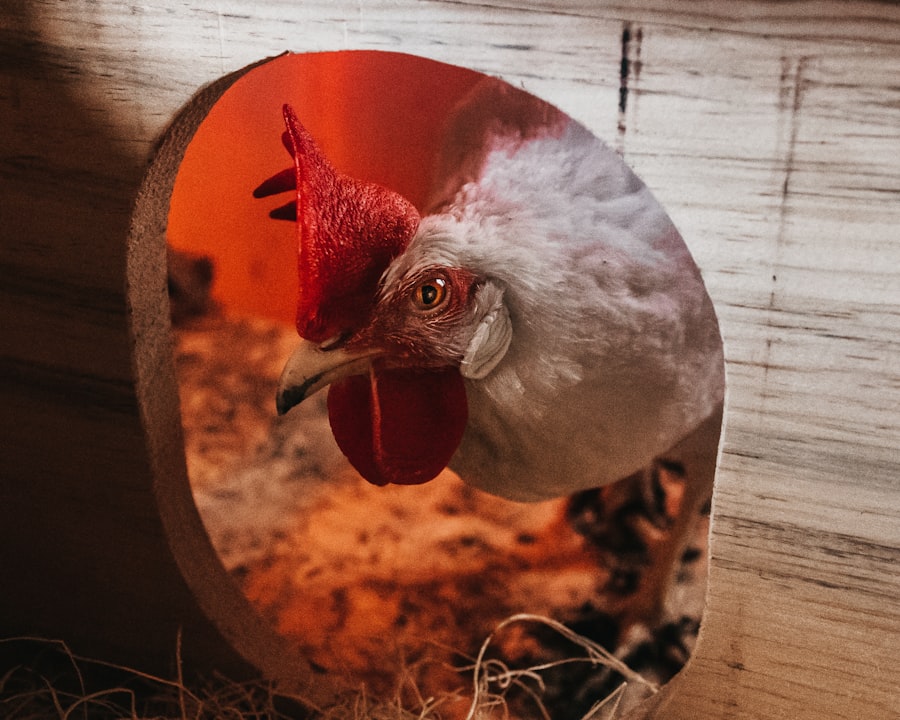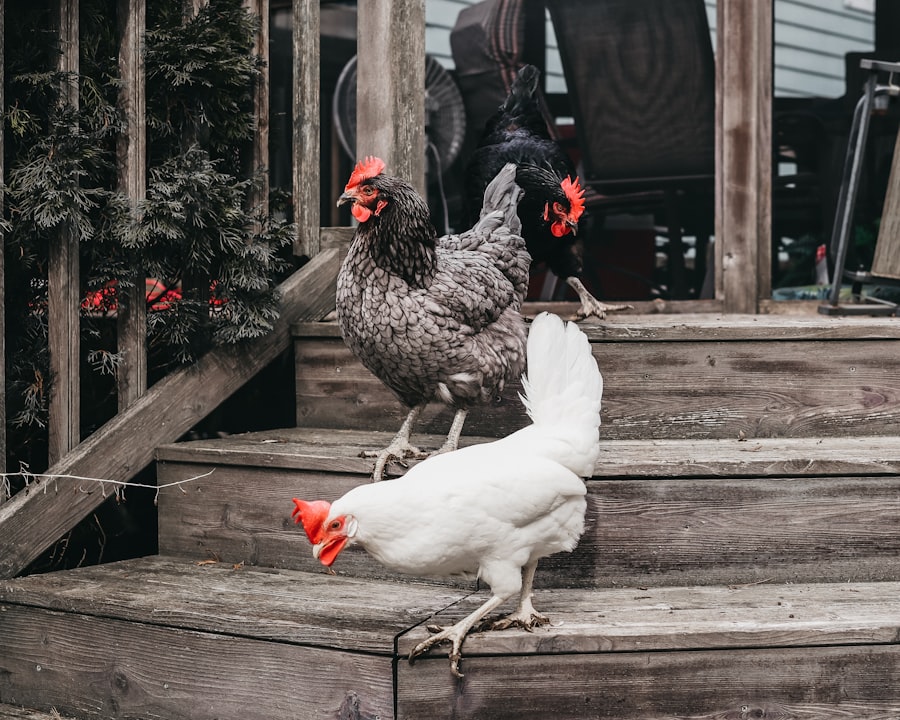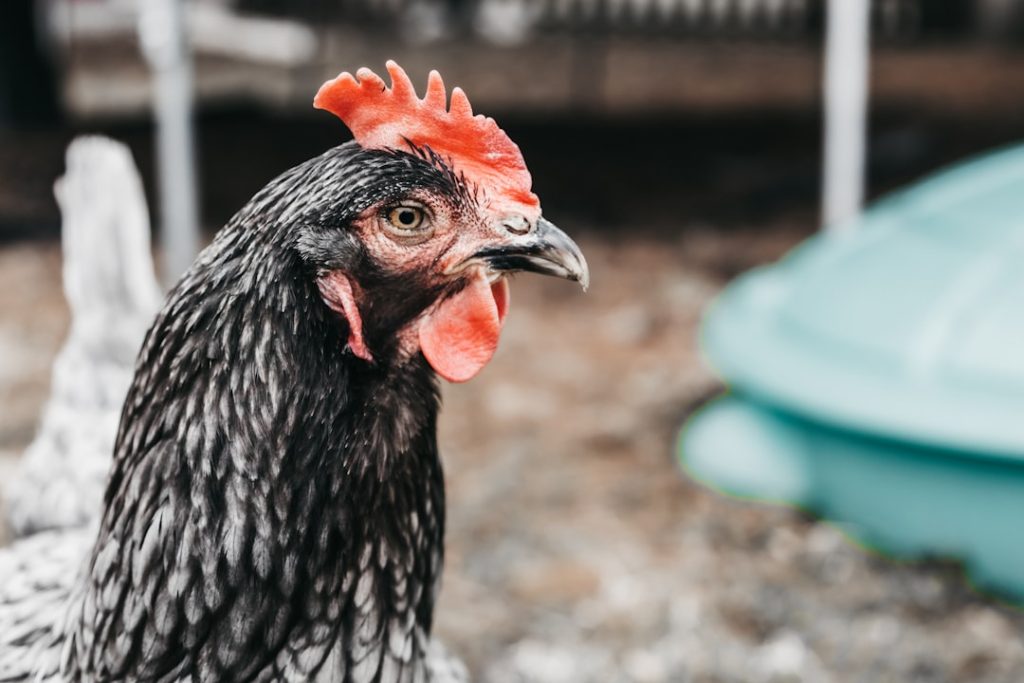When selecting a chicken breed for a backyard coop, several factors should be considered. Climate is a crucial consideration, as some breeds are better adapted to cold weather, while others thrive in warmer conditions. The intended purpose of the chickens is also important, whether for egg production, meat, or both.
Temperament is another key factor, especially for households with children or other pets, where friendly and docile breeds are preferable. Available space should also be taken into account, as some breeds are more suitable for free-ranging, while others adapt well to confined areas. After considering these factors, specific breed research can begin.
Popular backyard chicken breeds include Rhode Island Red, Plymouth Rock, and Sussex, known for their hardiness, good egg production, and friendly dispositions. For cold-hardy breeds, Orpington and Wyandotte are suitable options. In warmer climates, Leghorn and Australorp may be appropriate choices.
The ideal breed selection ultimately depends on individual needs and preferences, necessitating thorough research and careful consideration.
Table of Contents
Key Takeaways
- When choosing a breed, consider factors such as egg production, temperament, and climate adaptability
- Set up the coop with proper ventilation, nesting boxes, and roosting bars for the chickens’ comfort and safety
- Provide a balanced diet with a mix of grains, protein, and calcium for optimal health and egg production
- Regularly monitor the chickens for signs of illness and provide necessary vaccinations and treatments
- Handle and socialize the chickens from a young age to ensure they are comfortable with human interaction and reduce stress
- Expect variations in egg production based on factors such as breed, age, and environmental conditions
- Understand the breeding and reproduction process to effectively manage and expand your flock
Setting Up the Coop
Coop Size and Space
The general rule of thumb is to allow 2-3 square feet of space per chicken inside the coop, and 8-10 square feet per chicken in an outdoor run. This will ensure that your chickens have plenty of room to move around and exercise.
Coop Layout and Ventilation
Next, consider the layout of the coop. You’ll need nesting boxes for your hens to lay their eggs, as well as roosting bars for them to perch on at night. Make sure the nesting boxes are filled with clean bedding material, such as straw or wood shavings, and that they are located in a quiet, dark area to encourage egg laying. Additionally, make sure the coop is well-ventilated to prevent moisture buildup and ammonia fumes, which can be harmful to your chickens’ respiratory health.
Predator-Proofing and Safety
Finally, make sure the coop is predator-proof. This means using sturdy wire mesh to cover any windows or vents, and ensuring that the door latches securely to keep out predators such as raccoons or foxes.
Feeding and Nutrition

Proper nutrition is essential for keeping your backyard chickens healthy and productive. When it comes to feeding your flock, there are several key considerations to keep in mind. First and foremost, chickens require a balanced diet that includes protein, carbohydrates, fats, vitamins, and minerals.
A good quality commercial feed will provide all of these nutrients in the right proportions, but you can also supplement their diet with kitchen scraps, fruits, vegetables, and even insects. In addition to providing a balanced diet, it’s important to make sure your chickens have access to clean water at all times. Chickens can drink a surprising amount of water each day, especially during hot weather or when they are laying eggs.
Make sure their waterers are kept clean and free of debris, and consider adding apple cider vinegar to their water to help prevent bacterial growth and promote good gut health. Finally, consider offering your chickens access to grit and oyster shells. Grit helps chickens grind up their food in their gizzards, while oyster shells provide calcium to help strengthen eggshells.
Health and Wellness
Keeping your backyard chickens healthy is essential for their overall well-being and productivity. There are several key aspects of chicken health to keep in mind as a chicken owner. First and foremost, it’s important to keep a close eye on your chickens for any signs of illness or injury.
Common signs of illness in chickens include lethargy, loss of appetite, abnormal droppings, respiratory issues, or changes in behavior. If you notice any of these signs, it’s important to seek veterinary care as soon as possible. In addition to monitoring for signs of illness, it’s important to practice good biosecurity measures to prevent the spread of disease within your flock.
This includes quarantining new birds before introducing them to your existing flock, keeping your coop clean and free of debris, and practicing good hygiene when handling your chickens. Additionally, consider vaccinating your chickens against common diseases such as Marek’s disease or Newcastle disease to help prevent outbreaks. Finally, providing your chickens with a clean and comfortable living environment is essential for their overall health and wellness.
This means regularly cleaning their coop and nesting boxes, providing them with fresh bedding material, and ensuring they have access to clean water at all times. Additionally, consider providing your chickens with opportunities for exercise and mental stimulation by allowing them access to an outdoor run or providing them with enrichment activities such as hanging treats or toys.
Proper handling and socialization are important aspects of raising backyard chickens. When handling your chickens, it’s important to be gentle and calm to avoid causing them stress or injury. Approach them slowly and calmly, and avoid making sudden movements or loud noises that could startle them.
Additionally, try to handle your chickens regularly from a young age to help them become accustomed to human interaction. Socialization is also important for chickens’ overall well-being. Chickens are social animals that thrive in flocks, so it’s important to provide them with opportunities for social interaction with other chickens.
This can be achieved by keeping multiple chickens together in a flock and providing them with plenty of space to move around and interact with each other. In addition to socializing with other chickens, some chicken owners also enjoy spending time with their birds themselves. Many chickens can be quite friendly and enjoy human interaction when handled gently and regularly from a young age.
Spending time with your chickens can be a rewarding experience for both you and your birds.
Egg Production

Nutrition for Optimal Egg Laying
A balanced diet is essential for egg production. Ensure your hens receive a diet rich in protein and calcium to support egg laying. A high-quality commercial feed provides the necessary nutrients in the right proportions. You can also supplement their diet with kitchen scraps, fruits, vegetables, and insects.
Hydration is Crucial
Access to clean water is vital for egg production. Chickens consume a significant amount of water daily, especially when laying eggs. Ensure their waterers are clean, free of debris, and consider adding apple cider vinegar to promote good gut health and prevent bacterial growth.
A Comfortable Laying Environment
Provide your hens with comfortable nesting boxes filled with clean bedding material like straw or wood shavings. Locate the nesting boxes in a quiet, dark area of the coop to encourage egg laying.
Breeding and Reproduction
If you’re interested in breeding your backyard chickens, there are several key considerations to keep in mind. First and foremost, make sure you have a good understanding of chicken genetics and breeding practices before attempting to breed your birds. This will help you make informed decisions about which birds to breed together in order to achieve desirable traits in the offspring.
When breeding chickens, it’s important to provide them with a comfortable and stress-free environment in order to encourage successful mating and reproduction. This means ensuring that their living quarters are clean and comfortable, providing them with a balanced diet that includes plenty of protein and calcium to support egg laying and fertility, and minimizing any sources of stress or disruption in their environment. Additionally, consider providing your breeding birds with plenty of space to move around and exercise in order to encourage natural mating behaviors.
Finally, make sure you have a plan in place for caring for any chicks that may hatch as a result of breeding efforts. This may include providing them with a separate brooder area equipped with heat lamps and plenty of food and water until they are old enough to join the rest of the flock. In conclusion, raising backyard chickens can be a rewarding experience that provides you with fresh eggs, natural pest control in your yard or garden, and the joy of caring for these charming animals.
By carefully considering factors such as breed selection, coop setup, feeding and nutrition, health and wellness practices, handling and socialization techniques, egg production strategies, and breeding considerations, you can ensure that your flock thrives under your care. With proper attention and care, your backyard chickens can provide you with years of enjoyment and productivity.
If you’re interested in learning more about keeping Icelandic chickens, you may also want to check out this article on what vegetables do quails eat. It provides valuable information on the dietary needs of quails, which can also be helpful in understanding the nutritional requirements of Icelandic chickens.
FAQs
What are Icelandic chickens?
Icelandic chickens are a breed of chicken that originated in Iceland. They are known for their ability to withstand harsh weather conditions and their ability to forage for food.
How do you keep Icelandic chickens?
To keep Icelandic chickens, you will need to provide them with a secure coop or shelter to protect them from predators and harsh weather. They will also need access to a large outdoor area for foraging and exercise. Additionally, they will need a balanced diet of chicken feed, grains, and access to fresh water.
What are the characteristics of Icelandic chickens?
Icelandic chickens are known for their hardiness, ability to forage for food, and their ability to withstand cold weather. They come in a variety of colors and have a unique appearance with a small comb and wattles.
What do Icelandic chickens eat?
Icelandic chickens eat a balanced diet of chicken feed, grains, and foraged food such as insects, seeds, and plants. It is important to provide them with access to fresh water at all times.
How do you care for the health of Icelandic chickens?
To care for the health of Icelandic chickens, it is important to provide them with a clean and secure living environment, a balanced diet, and access to fresh water. Regular health checks and vaccinations may also be necessary to prevent diseases.
Meet Walter, the feathered-friend fanatic of Florida! Nestled in the sunshine state, Walter struts through life with his feathered companions, clucking his way to happiness. With a coop that’s fancier than a five-star hotel, he’s the Don Juan of the chicken world. When he’s not teaching his hens to do the cha-cha, you’ll find him in a heated debate with his prized rooster, Sir Clucks-a-Lot. Walter’s poultry passion is no yolk; he’s the sunny-side-up guy you never knew you needed in your flock of friends!







